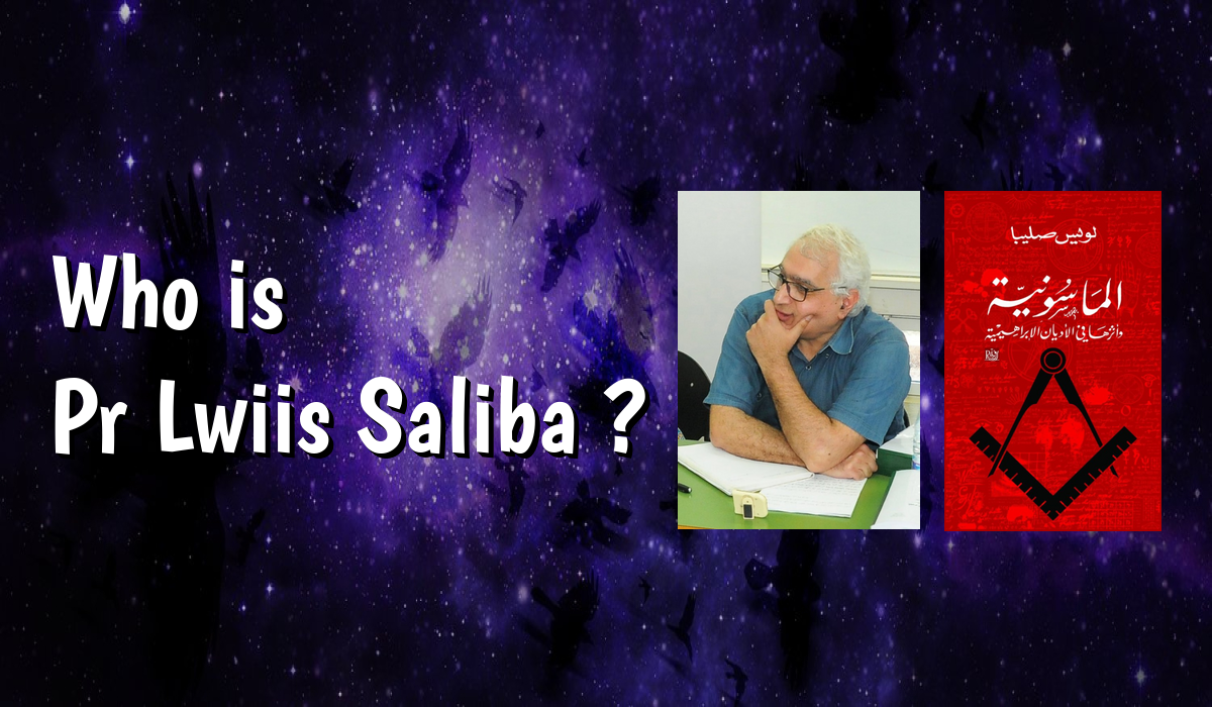Who is the Professor Lwiis Saliba ?

Professor Lwiis Saliba
An Honorable Biography of an Exceptional Figure in Scientific and Philosophical Creativity.
He is Professor Lwiis Saliba, a university professor, lecturer, and creative author, specialized in philosophy, literature, psychology, and social sciences, particularly in the sciences of religions and comparative religions. He is a reference and a scholar in many scientific fields, a comprehensive researcher with extensive exploration of manuscripts, literary and historical sources, and the sciences of religions and their doctrines.
Born in Byblos, he pursued his primary and complementary education at the Marist Brothers / Frères School in Amchit and Byblos. He completed his secondary education at the Rosary Sisters High School – Byblos, where he obtained the French Baccalaureate in Mathematics and Sciences in 1980, achieving first place in Lebanon in the preliminary exams (Anticipation) for this certificate. He also obtained the Lebanese Baccalaureate – Second Section in Mathematics.
He continued his higher education at the Lebanese University, earning the following degrees:
-
A teaching license in Arabic language and literature / Faculty of Arts and Humanities, 1984.
-
A master’s degree in Arabic language and literature / Faculty of Arts and Humanities, 1988.
-
A license in Social Sciences / Institute of Social Sciences, 1984.
-
A license in Documentation and Media / Faculty of Information and Documentation, 1985.
-
A diploma in Psychology / Faculty of Arts and Humanities, 1984.
He studied Syriac and Latin with his uncle Father Francis Saliba, Hebrew with Swami Vijayananda, and Hindi and Sanskrit at the Universities of Hyderabad and Banaras in India.
He lived in India for about three years. At the University of Hyderabad, he defended his doctoral dissertation in 2001 on: “The Oldest Book in the World: Rig Veda – Study, Translation, and Commentary.” He studied Hinduism and Yoga at several universities and institutes, most notably Banaras University and Sivananda Ashram in Rishikesh (1998). He also studied Buddhism in Dharamsala at the Dalai Lama’s Center, and Sikhism at the Golden Temple in Amritsar / Punjab. He pursued academic and practical studies in Indian medicine (Ayurveda) at several hospitals in Bombay (Ayushakti) and Rishikesh (Arora Clinic), as well as at the Universities of Bombay and Banaras (B.H.U.). He also defended a dissertation in the history of medicine titled: “The Encyclopedia of Ayurveda: A Study in Indian Medicine and Its Influence in the Land of Islam.”
Additionally, Saliba lived in Paris for about 12 years for study and teaching. He obtained his PhD from the Sorbonne in 2005, with his dissertation titled: “The Mystical Experience of Abu Yazid al-Bistami.” He taught in several institutes and universities and supervised doctoral theses.
He has been a visiting professor at several universities in Iran and the Netherlands, including the University of Religions and Denominations in Qom, Iran, among others.
He participated in numerous international conferences on religious studies and interfaith dialogue in Tehran, Cairo, Najaf, Karbala, Paris, Vlodrop / Netherlands, Tunis, Beirut, and other Lebanese cities.
He is a professor of Islamic Studies and Comparative Religions, and a research director at the Faculty of Religious Sciences – Saint Joseph University.
At his residence in Byblos, he founded an intellectual forum where he holds educational seminars on topics related to his works, as well as those of other major authors, hosting specialists whose contributions result in valuable reports.
Dr. Lwiis Saliba has published dozens of books, either as critical editions, translations, or reprints with commentaries, through Dar wa Maktabat Biblion, which he founded in Byblos. It specializes in religions, Sufism, Orientalism, Islamic studies, minority heritage, and sectarian studies, with its website established in 2012.
His inclination toward deep exploration in religious studies led him to Paris, Egypt, India, Iran, and beyond. He speaks of his experience, saying:
“The person who influenced me the most was my doctoral supervisor, the orientalist Pierre Lory. I admired in him both the researcher and the human being, and I appreciated his approach to Islam that combined warmth with academic rigor. What united me with Lory was our shared love for Islamic mysticism, particularly Abu Yazid al-Bistami. I have spoken about this beloved, kind orientalist in several of my works, especially in my translation of one of his writings. In Egypt, I experienced Islam between al-Azhar and al-Husayn, two venerable institutions separated only by a road that one crosses through an underground passage. At al-Azhar, I attended some lessons. While they did not add much to my knowledge, being delivered by al-Azhar sheikhs and marked with their mindset allowed me to understand their way of thinking and approach to Islamic studies. Yet, the most profound impact remains what I lived and experienced at al-Husayn.”
His works, critical editions, and studies are diverse, covering intellectual, historical, and religious fields, and were published by Dar wa Maktabat Byblion.
Link of the book: الماسونية و أثرها في الأديان الإبراهيمية





Comments : 0